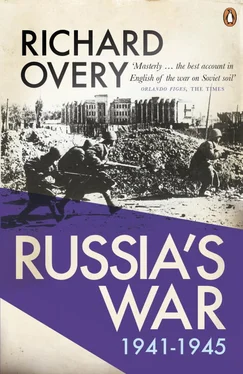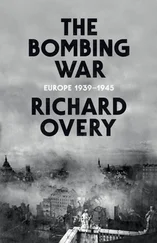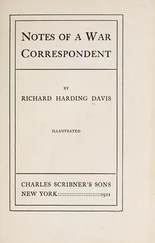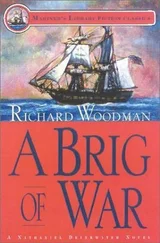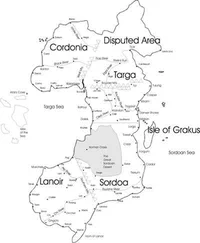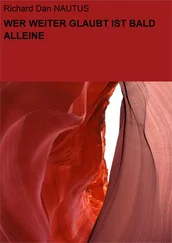Richard Overy - Russia's War
Здесь есть возможность читать онлайн «Richard Overy - Russia's War» — ознакомительный отрывок электронной книги совершенно бесплатно, а после прочтения отрывка купить полную версию. В некоторых случаях можно слушать аудио, скачать через торрент в формате fb2 и присутствует краткое содержание. Город: London, Год выпуска: 1999, ISBN: 1999, Издательство: Penguin Books Ltd, Жанр: military_history, на английском языке. Описание произведения, (предисловие) а так же отзывы посетителей доступны на портале библиотеки ЛибКат.
- Название:Russia's War
- Автор:
- Издательство:Penguin Books Ltd
- Жанр:
- Год:1999
- Город:London
- ISBN:978-0-14-192512-7
- Рейтинг книги:4 / 5. Голосов: 1
-
Избранное:Добавить в избранное
- Отзывы:
-
Ваша оценка:
- 80
- 1
- 2
- 3
- 4
- 5
Russia's War: краткое содержание, описание и аннотация
Предлагаем к чтению аннотацию, описание, краткое содержание или предисловие (зависит от того, что написал сам автор книги «Russia's War»). Если вы не нашли необходимую информацию о книге — напишите в комментариях, мы постараемся отыскать её.
[Contain tables. Best viewed with CoolReader.]
Russia's War — читать онлайн ознакомительный отрывок
Ниже представлен текст книги, разбитый по страницам. Система сохранения места последней прочитанной страницы, позволяет с удобством читать онлайн бесплатно книгу «Russia's War», без необходимости каждый раз заново искать на чём Вы остановились. Поставьте закладку, и сможете в любой момент перейти на страницу, на которой закончили чтение.
Интервал:
Закладка:
Stalin may not have been paranoid in this sense, but he was consumed throughout his dictatorial career by a profound fear of assassination. His personal security was notoriously extravagant. He travelled in heavily armour-plated cars, surrounded by personal bodyguards supplied by the NKVD. He never drove the same route twice in succession. He ordered curtains to be cropped so that assassins could not hide behind them. He was guarded twenty-four hours a day. By the end of his life the defensive perimeter around his dacha [country retreat] at Kuntsevo on the outskirts of Moscow resembled a prison camp. These might all be regarded as the precautions of any tyrant whose career was littered with men and women with reason enough to murder him. In the Soviet Union they were more than usually necessary, for there was a long tradition of assassination in Russian life. Before the war of 1914 thousands of state officials, from minor bureaucrats to the prime minister himself, Petr Stolypin, were assassinated. Political murder was central to the Russian terrorist tradition that helped to shape the political tactics of Bolshevism. Once in power those traditions were turned against the new masters. Lenin narrowly survived an assassination attempt in August 1920 by a woman who had already spent eleven years hard labour in a Tsarist prison camp for an earlier attempt to murder an imperial official in Kiev. Stalin’s personal security, tight though it was, could not guarantee immunity from what was widely regarded (and is still so viewed in Russia today) as a conventional way to settle scores. Stalin never scrupled to resort to assassination himself when he perceived a threat great enough to warrant it.
What made Stalin’s terror different was not merely the scale of arrests and executions – by 1939 there were, in recent estimates, approximately 3.5 million prisoners in the various categories of camps – but the fact that this fearful and vindictive man turned the terror on the very heart of the Soviet system, the Party and the armed forces, even on the NKVD, itself the apparatus of terror. 40The political terror began in 1933 with the expulsion of 790,000 Party members on charges of corruption and careerism, not all of them fabricated. 41In 1934, following the murder of the popular Party leader in Leningrad, Sergei Kirov (probably, but not certainly, on Stalin’s orders), draconian powers were granted to the state to arrest, try and execute political conspirators summarily, without due process of law.
Within weeks of Kirov’s death thousands were rounded up in Moscow and Leningrad, accused of a plot to overturn Stalin. At the Leningrad headquarters of the NKVD, 200 suspects a day were shot. 42The outcome of the investigation was the first of the major ‘show trials’, which opened on 15 August 1936 with the trial of the Zinoviev circle. The fabricated plots, linking Communist leaders with foreign imperialists or renegade socialists, above all with that exiled and disgraced apostate, Leon Trotsky, were fed as truth to the public at home and abroad. Many Soviet citizens, with access only to the mass media controlled by the regime, believed the accusations. The show trials held between 1936 and 1938 produced one confession after another of counter-revolutionary crimes, beaten and extorted from the defendants. Stalin is said to have undertaken occasional interrogations, though it is almost beyond credibility that he could have believed the web of deceit that was spun at his own ordaining. His real political skill, and a feature of his behaviour throughout the dictatorship, was to be perceived by the public as the incorruptible statesman who had saved the revolution from the machinations of countless fifth-columnists. On occasion he turned the terror on the secret policemen themselves to give the calculated impression that they, not he, were to blame for the orgy of violence – a political practice that he later persistently used to mask his military failures during the war. 43
Stalin was assisted at the height of the terror by two able accomplices, the lawyer Andrei Vyshinsky, who was made Procurator General in 1935, and later became the Soviet Union’s first ambassador to the United Nations, and Nikolai Yezhov, who was appointed to head the NKVD in 1936. Together they cut swathes through the Party élite. Of the 1,966 delegates at the 17th Party Congress in 1934, 1,108 were shot as enemies of the people. The two years of the ‘Yezhovshchina’ saw the execution, according to the latest Russian figures, of 680,000 people. 44Almost no area of state or Party was immune from the spiral of terror. There remained not a single base for opposition to Stalin. The fear induced by the terror promoted the most grotesque expressions of loyalty, which in turn laid the foundation for the widespread ‘cult of personality’.
The Soviet armed forces appeared to be the only major area of state to avoid the terror, until on the morning of 11 June 1937 Voroshilov announced the sudden arrest of the country’s top generals and the unearthing of a treacherous plot whose tentacles reached out to Germany. It was alleged that no less a figure than Tukhachevsky himself was responsible for planning to overthrow the state at the head of a German army of invasion. The precise motives for the purge remain obscure, for the accusations themselves were entirely without foundation. Tukhachevsky was a popular and outspoken man who disliked Voroshilov and the military amateurs in the Party. He crossed Stalin over the issue of political propaganda in the armed forces, which he wanted to reduce. Neither attitude provides a convincing explanation for Stalin’s sudden change of heart about the army or for the speed and violence of the purge. The explanation least likely to an outside observer may well be nearest the truth: Stalin’s suspicious mind may have been sufficiently aroused by the flimsy rumours of army unreliability currently circulating abroad to take the story of the conspiracy seriously.
According to one version, German counter-intelligence deliberately planted in Prague a document with Tukhachevsky’s forged signature on it suggesting a German–Red Army conspiracy. President Edvard Benes of Czechoslovakia passed the information on when it was discovered, and the NKVD simply extrapolated the plot from the German deception. 45A second version suggests that the NKVD, in order to boost the reputation of its leader, not only encouraged the circulation of foreign rumours and opinions suggesting the unreliability of the army, but may also have had a hand in encouraging the German misinformation. Since Stalin may not even have seen the documents sent from Czechoslovakia, and since the fears of army dissent were already in circulation before they arrived, this version seems the more likely. Yezhov’s deputy, Frinovsky, was alleged to have told a Moscow NKVD investigator in the spring of 1937 that he should ‘develop a line about an important, deep-seated plot in the Red Army’. He was instructed to make it clear that Yezhov’s own role in unmasking it ‘must appear enormous’. 46
However the purge was plotted, the effect was to persuade the habitually distrustful Stalin that there was some substance to the idea of army disloyalty. The NKVD had in their cells a brigade commander named Medvedev who was chosen as the unfortunate instrument to betray his seniors. He was tortured into confessing the necessary evidence, then recanted and was tortured again until the confessions stuck. 47The details were passed on to Stalin. Mikhail Shpigelglaz, head of foreign intelligence in the NKVD, remembered that the news was treated as ‘a real conspiracy’. In the Kremlin he observed a genuine panic. All Kremlin passes were declared invalid, and NKVD troops were put on a state of alert. 48Stalin did not order Tukhachevsky’s immediate arrest but played cat and mouse with him. He had been tailed for some time, as Yezhov searched for incriminating behaviour. He was due to represent the Soviet Union at the coronation of the British King, George VI, in May 1937. His attendance was suddenly cancelled on the grounds that another plot had been unearthed, one to murder Tukhachevsky on his way through Warsaw to London. He was then ordered to take up command of the Volga Military District, a dizzying demotion. 49He must have sensed something worse. To those around him he appeared nervous and depressed. His hair reportedly turned grey in two months.
Читать дальшеИнтервал:
Закладка:
Похожие книги на «Russia's War»
Представляем Вашему вниманию похожие книги на «Russia's War» списком для выбора. Мы отобрали схожую по названию и смыслу литературу в надежде предоставить читателям больше вариантов отыскать новые, интересные, ещё непрочитанные произведения.
Обсуждение, отзывы о книге «Russia's War» и просто собственные мнения читателей. Оставьте ваши комментарии, напишите, что Вы думаете о произведении, его смысле или главных героях. Укажите что конкретно понравилось, а что нет, и почему Вы так считаете.
